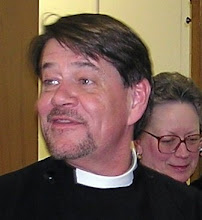The Sea of Vagueness

Recently, the Pew Forum on Religion and Public Life released the first set of findings from its massive U.S. Religious Landscape Survey 2008. As I studied the report and tracked its initial coverage in the mainstream media, I took special note of the provocative phrases employed to catch the public’s attention: “many Americans switch faith identity,” “faith identity fluctuates,” “constant membership turnover,” “a quantum leap in the rate of change,” “Churn. Churn. Churn.”
For those who read beyond the headlines and initial paragraphs of these news stories there was important information. Based on a sample of more than 30,000 adults and done with a methodological rigor that will make this survey a benchmark for future attempts to map the religious life of Americans, the Landscape Survey offered much to ponder. First, America remains stunningly Christian, at least in terms of religious self-identification. Of those polled, 78.4 percent identified themselves that way. After more than a century of modernity, secularism, higher education, enlightenment, and new religions, the vast majority still see themselves as in some way Christian.
[snip]
What do all these statistics mean for those who lead American congregations? Interestingly, the survey does not focus on congregations at all. Yet the local churches, synagogues, and temples of the land are the places where all this switching, fluidity, and vagueness manifest themselves week after week. In every worship service, board meeting, Sunday school class, social event, and rite of passage, all the churn that the Landscape Survey points to “out there” in the national environment is going on “in here”—in the lives of individual members and the small faith communities they belong to. Once upon a time religious leaders represented very distinct religious communities that were clearly differentiated from the ones down the street or across town. Now our leaders work in a sea of religious vagueness and search for ways to help people surrounded by a growing tide of “nothing in particular” find something in particular to build a life upon. Stay tuned.
James P. Wind “Crunching the Numbers” Alban Institute http://www.alban.org/conversation.aspx?id=5818
Churn. That was the evocative word for me as a pastor and priest. Churn. By that I understand him to mean that the individual American who participates in a faith community by-in-large approaches religious institutions as basically a consumer enterprise. Like cell phone service, Internet provider or cable company, Americans appear to gravitate to the faith community that meets their need at the time. Some will form a bond and identity with that congregation, others won’t. No longer is there a cultural expectation that people will have some denominational affiliation which is internalized to the point of being part of their identity, but religion appears to function much more on surface level of “What serves me and my family most?”
Sometimes this churn manifests itself in changing churches because of some conflict with the leadership (lay or ordained), sometimes it’s a program (like programs for children and youth), and sometimes it’s a geographical consideration (a move across town), and sometimes its none of the above, but convenience of location and worship time.
Maybe I’m wrong, but I always feel sad, somewhat sold down the river and bemused at parishioners when they change Churches. Perhaps for me in my early life as a pastor, I assumed I was about building community, people to people connections that would transcend program or pastor. I had the mistaken impression that people joined the Episcopal Church for the same reasons I did---liturgy, polity and comprehensiveness. But that doesn’t appear to be the case for generations behind me.
Another compelling sentence was his conclusion in the above article:
Now our leaders work in a sea of religious vagueness and search for ways to help people surrounded by a growing tide of “nothing in particular” find something in particular to build a life upon. Stay tuned.
To preach into that vacuum on a weekly basis is a challenge. The “sea of vagueness” is daunting. Perhaps that vagueness has to do with Protestantism’s fear of taking stands, of its love affair with accommodation. We have made a good peace with war, state execution, economic promiscuity (Walter Bruggeman’s term which I love), sexism, racism and (for the most part) homophobia just to mention a few. When a preacher approaches these subjects directly in sermons, there are always comments at the door about “being too political” or “I come here for spiritual nurture, not politics”. Indeed the highest ethic one can perceive is “don’t upset anyone” and the hidden message is “or we will lose their pledge”.
Here in Holy Week when do we ask the questions that go beyond “Jesus loves you”? What does embracing Jesus as my savior have to do with my life in the world? What distinguishes me ethically from my non-practicing neighbor? Perhaps the vagueness has been conditioned by financial needs of the institution which is the epitome of the church selling out its most precious commodity---faith in a God who shows us that the way to peace and salvation is through the cross. Do we actually preach with power and authority that its not about winning, domination, individual salvation, but transformation of the world in incarnational ways.. How does one get to transformation if one is always trying to blend into this “sea of vagueness”? It seems to me a good question to take into Holy Week.


0 Comments:
Post a Comment
<< Home